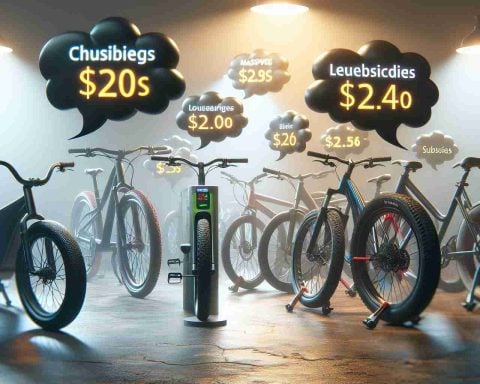Aspen Aerogels, a company based in Massachusetts, is set to receive up to $670 million from the U.S. Department of Energy. This financial support aims to boost the production of their advanced battery safety materials, specifically designed to prevent fires in electric vehicles.
Key statistics indicate that electric vehicle fires are less common than those in gasoline cars, but their complexity makes them headline-worthy. In response, the United States is committed to enhancing safety measures through domestic production of innovative materials.
The Department of Energy announced a provisional $670 million loan for Aspen Aerogels, which creates “thermal barriers” for electric vehicle batteries. These barriers are crucial in minimizing the risks associated with thermal runaway, a critical condition where batteries can overheat uncontrollably, potentially causing prolonged fires.
Aspen Aerogels’ technology involves lightweight, thin barriers inserted between battery cells. With thicknesses ranging from one to four millimeters, they effectively contain fires, while maintaining battery efficiency. The installation cost ranges from $300 to $1,000 per vehicle.
This initiative will also create significant employment opportunities. Construction of a new plant in Register, Georgia, is expected to generate 550 construction jobs and 255 permanent positions. Once operational in 2027, the facility aims to equip up to 2 million electric vehicles with these safety-enhancing barriers annually.
While battery manufacturers like LG Chem introduce innovative safety layers, the broader challenge entails making these technologies widespread and affordable, ensuring enhanced safety for all EV users.
The Impact of Advanced Battery Safety Materials on Society
The rise of electric vehicles (EVs) has heralded a new era of energy-efficient and environmentally friendly transportation. However, ensuring the safety of these vehicles is paramount, particularly in light of concerns about battery-related fires. The recent decision by the U.S. Department of Energy to inject up to $670 million into Aspen Aerogels underscores the importance of developing advanced battery safety materials. This significant investment seeks to bolster the production and implementation of thermal barriers that prevent battery fires, influencing not just individual scenarios, but also broader societal dynamics.
Enhancing Electric Vehicle Safety
Contrary to popular belief, electric vehicle fires are statistically less common than those in gasoline-powered cars. Yet, when they do occur, their complexity and the potential for prolonged fires make them especially concerning. This is primarily because EV battery fires are difficult to control and require specialized intervention. Advanced thermal barriers, like those developed by Aspen Aerogels, are crucial in reducing the risk of thermal runaway—a phenomenon where battery temperature rises rapidly, leading to fires.
The technology integrated into these vehicles consists of lightweight, thin barriers placed between battery cells. By effectively containing heat and preventing the spread of fire without compromising battery performance, these barriers add an essential layer of safety. The cost of installation, ranging from $300 to $1,000 per vehicle, represents a worthwhile investment in the safety and longevity of EVs.
Economic and Employment Opportunities
The construction of Aspen Aerogels’ new plant in Register, Georgia, illustrates the economic potential of this initiative. Creating 550 construction jobs and 255 permanent positions, the facility is set to operationalize by 2027. The capability to equip up to 2 million electric vehicles annually with safety-enhancing barriers points towards a robust contribution to both local economies and the national economic landscape. Moreover, it signifies a proactive response to the upsurge in EV adoption, future-proofing this burgeoning industry against potential hazards.
Broadening the Reach of Safety Technologies
Despite advancements, a broader challenge remains: making battery safety technologies widespread and cost-effective. Currently, only select manufacturers, such as LG Chem, are integrating these safety layers into their production lines. For electric vehicles to reach their full potential as a safe and viable mainstream transportation option, it is vital that these technologies become more ubiquitous and financially accessible.
Social and Environmental Implications
Enhancing battery safety has far-reaching implications beyond individual safety. It fosters public trust and encourages wider adoption of EVs, thus contributing to reduced carbon emissions and combating climate change. As more people switch to electric vehicles, communities and countries stand to benefit from cleaner air and reduced reliance on fossil fuels.
Ultimately, the development and dissemination of advanced battery safety materials not only safeguard individuals but also support global sustainability goals. As the world moves towards a greener future, investments in such innovations are pivotal, paving the way for a safer, cleaner, and more energy-efficient tomorrow.
For more information on advancements in energy innovation, visit the U.S. Department of Energy.

















